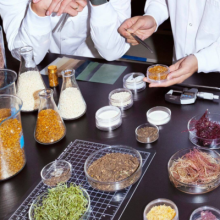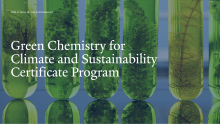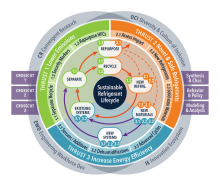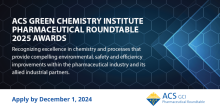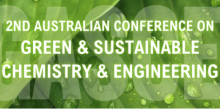green engineering
The Pathway to: Sustainable Aviation Fuel Commercial Liftoff (Downloadable Report)
"Aviation represents roughly 3.3% of total U.S. greenhouse gas emissions, and jet fuel consumption is forecasted to increase by 2-3% annually through 2050. Sustainable aviation fuel (SAF) is the only viable solution to meaningfully decarbonize our aviation sector in the near-term.
2nd Australian Conference on Green and Sustainable Chemistry & Engineering
Discover cutting-edge research, network with leading experts, and explore ground-breaking solutions for a sustainable future through green chemistry & engineering. An industry-focussed day on Wednesday, 11th December 2024, will facilitate industry, academia, and government authorities to network, share information, and identify opportunities for collaboration.
Plenary Speakers:
Professor Paul Anastas, Yale University
Professor John Warner, Technology Greenhouse
Professor Qin Li, Griffith Univerisity
Emerald Isle Conference on Sustainable Chemistry and Engineering (EIC 2025)
Emerald Isle Conference on Sustainable Chemistry and Engineering.
EIC 2025
QUB Belfast 9-11th April 2025.
The aim of this international conference is to act as a venue for green chemists, engineers and educators to meet on the Emerald Isle, share best practice and strengthen collaboration, and for global thought leaders to offer insights and shape the future direction of green chemistry and engineering education, research and industrial implementation.
Bioluminescent Lights
Lux Bio, a startup dedicated to sustainable innovation, has developed "Lume," a revolutionary bioluminescent lighting system designed to replace traditional chemiluminescent lights. This enzyme-based proprietary technology harnesses the power of enzymes to create a stable and long-lasting light source. When mixed with water, the bioluminescent formula produces light, offering a sustainable alternative to traditional chem lights. Unlike chemically synthesized alternatives, Lume is bio-manufactured in a lab using renewable resources, making it an environmentally friendly option.
Sustainable Battery Technology
Nanoengineered separator coatings and liquid electrolytes for faster charging, low cost, and energy-dense lithium-ion and lithium-metal batteries. Sepion Technologies has deployed its proprietary material discovery platform powered by Artificial Intelligence (AI) to predict material properties such as flash point and viscosity to develop a non-flammable liquid electrolyte that can reduce the risk and severity of fires in electric vehicles (EV) batteries.
Eco-friendly batteries
Automated recycling process that removes crucial ingredients to produce new EV batteries. In this process, robots remove modules and cells from discharged batteries. Materials are crushed, shredded, and separated into fractions of metals and plastics.
Pagination
- Page 1
- Next page
